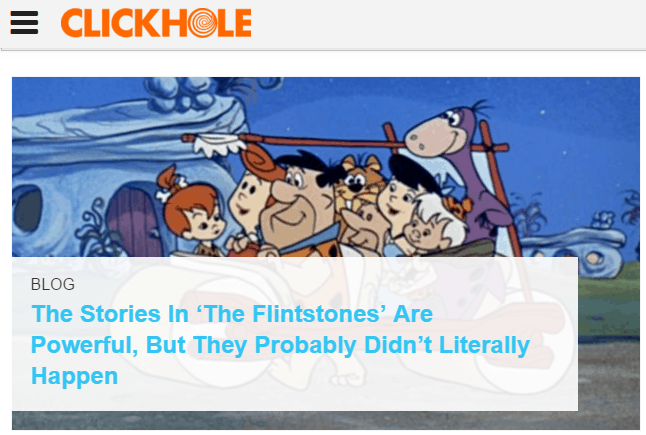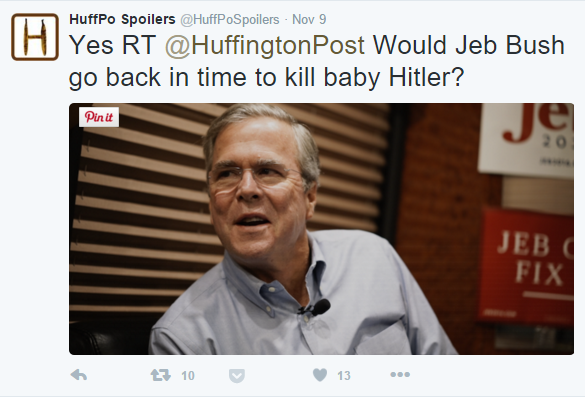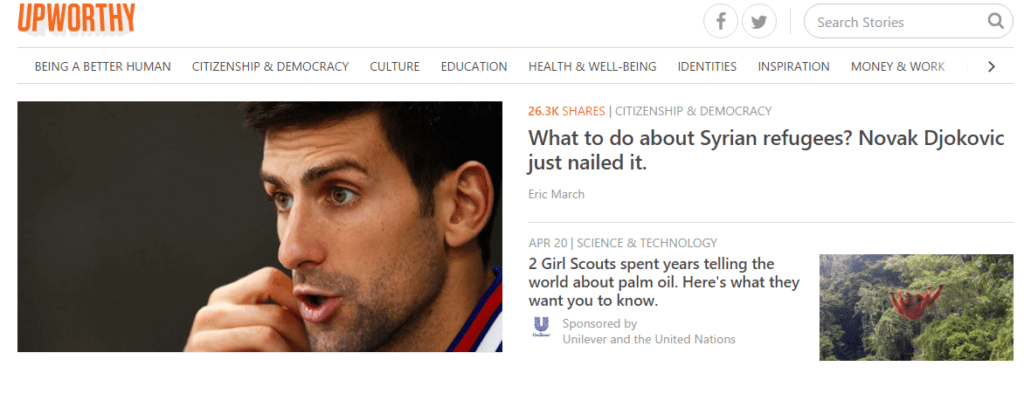 01392 914033
Offices are currently closed
01392 914033
Offices are currently closed
The best headlines, adverts and marketing campaigns draw the audience in, are engaging, inspiring and innovative, and leave the reader satisfied enough to want more. So why are so many brands and publications employing the tactic of underwhelming, baseless clickbait articles?

The English language has over a million words for marketers to play with, but how many times a da
y do you see a headline to the effect of ‘You will NOT believe the talent of this cat’ or ‘This cat weighs HOW MUCH?!’ (what can we say, the internet loves cats…)? These headlines psychologically trick you into clicking, instead of grabbing your attention through reliable content or the of use vocabulary in a clever, concise way.
Give it credit where it’s due, clickbait does what it says on the tin. We’re all guilty of being unable to resist clicking on that ‘43 things everyone does without even realising’ list but are they becoming too popular, too weak and letting down their audience too frequently?

Satirical news site The Onion recently launched ClickHole – a site dedicated to mocking the verging-on-ridiculous web-stories that are becoming so customary. Headlines such as ‘The stories in ‘The Flintstones’ are powerful, but they probably didn’t literally happen’ indicate a growing disdain for the over-exaggerated and underperforming gimmicky headlines.
Twitter accounts such as @SavedYouAClick, @HuffPoSpoilers and @UpworthySpoiler are waging a war on the rise of hyperbole by providing an answer to the dramatic headlines seen on sites like Upworthy, The Huffington Post and even The Telegraph.
The founders of these sites and accounts are all working in the social media and marketing industry, which indicates that, among content creators and wordsmiths at least, clickbait could be on its way out. Founder of @UpworthySpoiler, Matt Stembeck, says that he sees his account as a service to the public, rather than a campaign against Upworthy. The web designer and blogger has said ‘I like concise information. They are just adding more barriers between the users and that information.’

Even the king of the clickbait, Buzzfeed, is leaning its site more towards news stories and interesting features. The listicles and attention-grabbing headlines are still there, of course, but there has been a real effort in recent years for the brand to be taken more seriously as a news outlet.
In a way, clickbait is setting itself up for a fail. Of course, more clicks mean more readers and that looks excellent if you’re purely looking at click-throughs and visitors to your site, but what if you investigate deeper? If your content doesn’t match up to the promise in the headline, this can lead to an annoyed audience, a high bounce-rate and bad PR for your brand.
And in the busy culture of the 21st century, do people really have time to be sifting through content that won’t actually interest them?
This is where your extensive knowledge of SEO, keywords and the English language come in. Rather than just aim to increase website traffic, using interest-specific words in your work will bring searchers to your site who are actually appreciative of the content you’re creating! Imagine that…

If readers find your articles to be engaging, innovative and of interest to them, they are more likely to return time and time again. Loyal readers doesn’t just mean more consistent traffic, it means a higher quality of information to base your SEO on.
>>Read this article on the five reasons most SEO outreach campaigns fail
While content creators around the world are rejoicing at the gradual decline of the clickbait headline, it doesn’t mean to say that they should be completely eradicated. As long as your content lives up to the bait, guides your audience to other pages of the site and doesn’t damage the brand image, there’s no reason a sensationalist headline can’t help to entice new readers on the (very!) odd occasion.